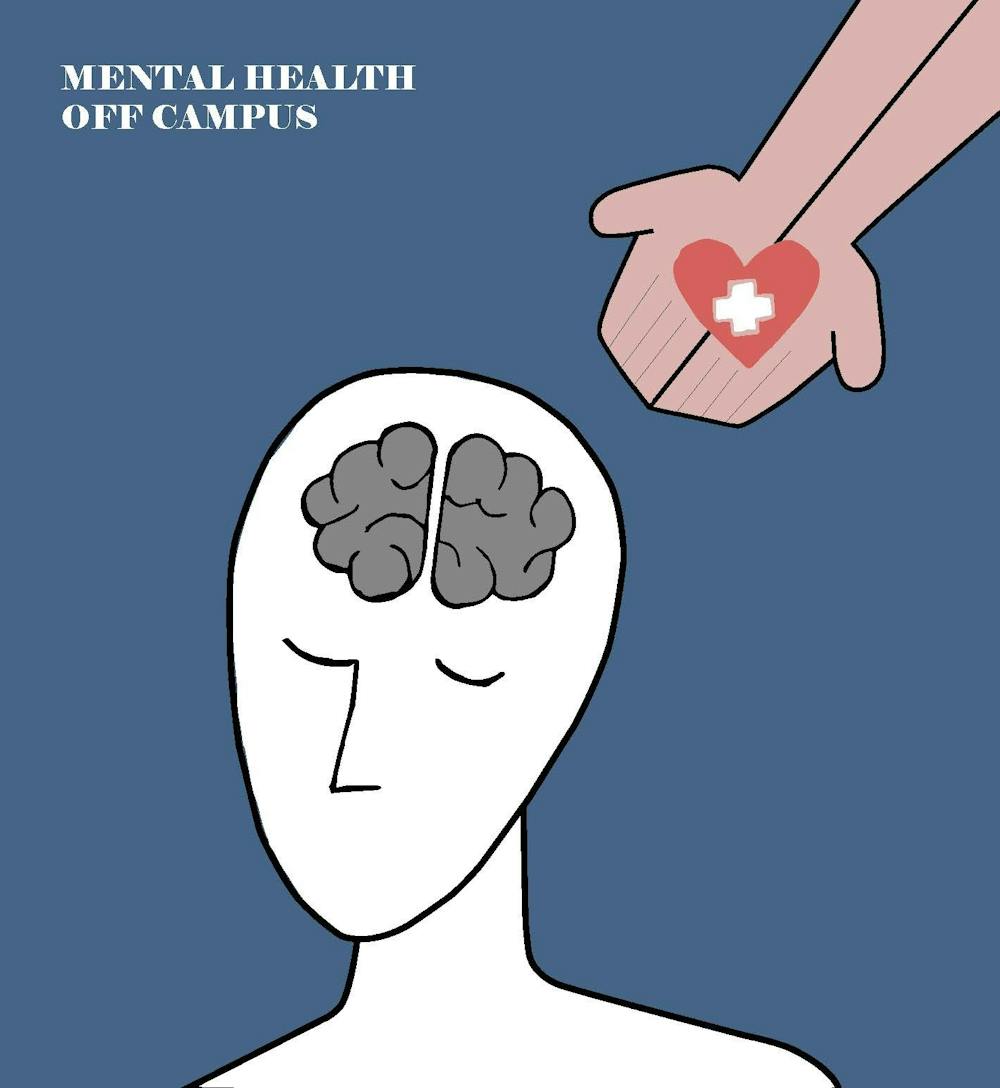Mental health plays a crucial role in an athlete’s performance, but who helps that student-athlete reach their full potential on and off the field or court?
When sports psychologists at Auburn determine whether or not an athlete is mentally ready, the student-athlete falls along a spectrum rather than being considered healthy versus unhealthy.
This spectrum contains the colors: red, yellow and green.
If an athlete is green, they are considered thriving and ready to go. They may stop by the sports psychologist office to receive guidance on how to maintain their mental health.
Someone who is yellow may be experiencing more stress than green. This person may stop by the office to pinpoint what they are struggling with and how to return to normal.
If an athlete's mental health state is considered red, this person may be struggling to balance academics, athletics and maintaining a social life.
In all of those scenarios, a sports psychologist is responsible for helping student-athletes cope with the demanding environment of collegiate sports.
“Overall, looking at my job is to take a holistic approach to student athlete’s well-being and help them figure out how to best thrive in all areas of their functioning here at Auburn,” said Sport Psychologist Joanna Foss, who has been working at Auburn since 2020.
Due to ongoing COVID-19 restrictions, this fall has been the first “normal” she has experienced since her hiring.
There are two sides to Foss’s job with Auburn’s student-athletes.
“The clinical mental health counseling side - that’s the licensed psychologist piece of me that allows me to work with people who are experiencing clinical mental health symptoms,” Foss said. “And then the sport performance side focuses on, you know, how does this really show up and impact you in an athletics context, and how can we help take you where you’re at to get a little bit better?”
The university provides student-athletes with individual and team therapies. Other than talk therapy, sports psychologists teach athletes basic psychotherapy, such as pre-competition routines, including breathing techniques.
Foss and Doug Hankes, the executive director of sport psychology and mental health counseling, often spend more time outside the office going to practices and games to observe the athlete’s performance in those environments.
Along with sports psychologists, AuburnYOU is an organization that seeks to enrich the student-athlete experience. They are responsible for hosting events and providing resources that include personal enhancement, leadership development, social responsibility and professional development.
"AuburnYOU is our student athlete development space," said Assistant Athletic Director of Student-Athlete Experience Megan Hooshyar. "It kind of encompasses all the areas that would support our student athlete beyond just their in-team, on-field experience...That would include collaborative efforts between academics, student-athlete enhancement...counseling and sports psychology, nutrition, sports performance, strength and conditioning and sports medicine."
As a student-athlete, there are unique stressors within collegiate sports.
Hankes, who has been a sports psychologist for over 29 years and has been at Auburn aiding student-athletes for the past 25 years, emphasized that the environment that student-athletes are in can be demanding. Coaches never let athletes get comfortable, and they’re always under the watchful eyes of fans.
From the time they step onto the field or court, these student-athletes are expected to meet the ever-changing expectations of fans and coaches alike.
Hankes also mentioned that most athletes struggle with the additional dedication of time to their sport and the dedication required to academics.
Earlier this year, Karen Hoppa, head coach of the women’s soccer team, emphasized the need for mental health awareness regarding the pressure the 18 to 22-year-old student-athletes endure on and off the field.
“Figuring out how to navigate just a lot of those conflicting demands, as a human, as an athlete, as a performer, all of those things are really important to have a space to explore all of that,” Foss said.
Auburn student-athlete mental services have only existed for five to six years, but they have been in the making for over 15 years. Hankes has been an advocate for the student athletic mental services department.
To this day, the athletic psychological services department is growing, with Jack Howard joining the roster.
“So the really nice part about our department, given our training across the spectrum, is that we’re able to help meet people wherever they’re at and take them where they want to go,” Foss said.
However, the stigma surrounding mental health still plays a prominent role in sports, but Hankes noted that several changes have been made, and the University is making the necessary steps to change the view on mental health.
He also added that student-athletes are more open to receiving help because of the vocalization of professional athletes and former Auburn student-athletes.
Hankes commented on Auburn’s participation along with 115+ other universities in the College Football Mental Health Week, on Oct. 1-10, held by the Hilinski’s Hope Foundation.
This foundation’s mission is to “save lives, eliminate stigma, and scale mental wellness programs for student-athletes” by sharing Tyler Hilinski’s story and connecting students with mental health resources.
“While conversations around mental illness can be tough and at times uncomfortable, it is absolutely critical for the wellbeing of our student-athletes,” said Kym Hilinski, one of the founders of H3H.
Hankes appraised the foundation's success in breaking down the stigma of mental health in sports and said that Auburn is currently expanding it to other sports, such as cross country, volleyball and soccer.
Do you like this story? The Plainsman doesn't accept money from tuition or student fees, and we don't charge a subscription fee. But you can donate to support The Plainsman.
Caitlyn Griffin is a sophomore from Huntsville, Alabama, majoring in journalism. She started with The Plainsman in fall 2022.
Twitter: @caitlyngrif99





